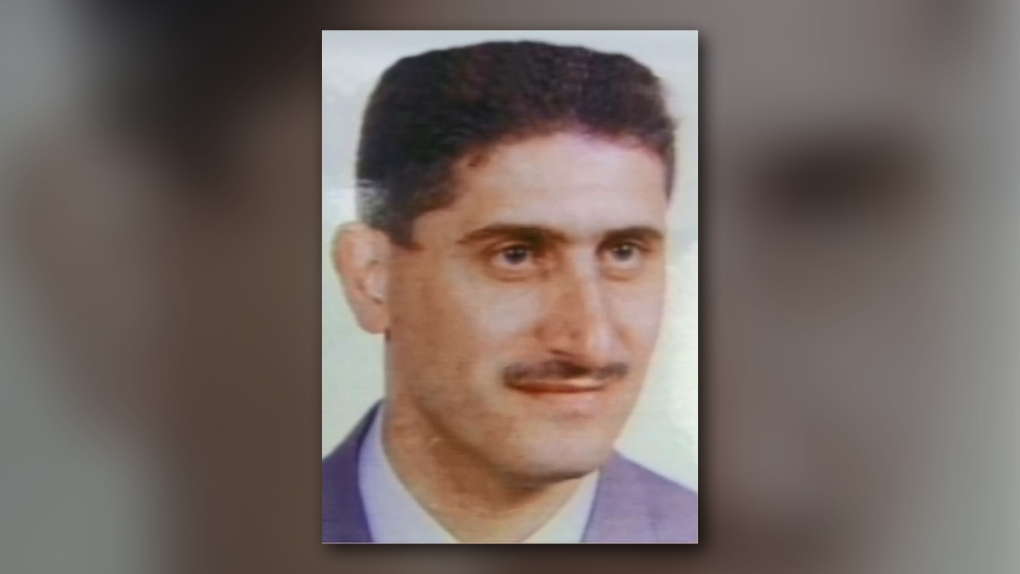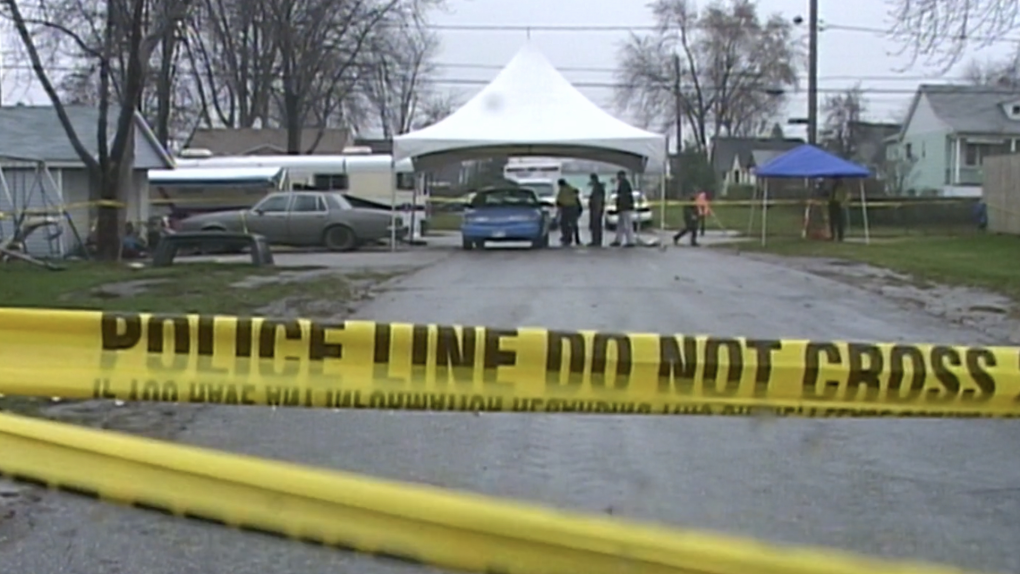Windsorite convicted in grisly 2004 murder of taxicab driver wants early parole
Ali Al-Shammari, 38, has been in prison since 2007 after being convicted of first-degree murder by a jury.
A new jury was selected Monday in Superior court, “For what’s called a faint hope application,” according to his lawyer Christopher Hicks.
“It is somewhat unusual,” Hicks told CTV News. “The jury does not decide the issue of release. It only decides the issue of whether or not to allow the applicant to go to the parole board and ask for this consideration.”
Hicks said an applicant must argue they have changed.
“That their personality is different, they have a different value system and that they are not a threat to the community,” he said.
The Crime
On Nov. 19, 2004, Thualfikar Alattiya, 41, was stabbed to death in the backseat of his own taxi.
“It was the Crowns’ theory that the applicant, then 19 years of age, together with Hasan Al Ghazzi, a 17-year-old high school friend and Mohamed Al Ghazzi, Hasan’s 19-year-old [brother], committed a planned and deliberate murder,” Justice Renee Pomerance told the jury panel Monday.
She told the jury Alattiya and the Al Ghazzi family were in a dispute over funding to build a local mosque.
“The Crown alleged that Daham [Al Ghazzi] encouraged his two sons, Hasan and Mohamed to beat up the victim,” Justice Pomerance said. “Together with Mr. Al-Shammari, they called for the victim’s cab to pick them up and then carried out the attack, confining the victim in the backseat of his taxi cab and stabbing him.”
 Thualfikar Alanttiya, 41, was killed on Nov. 19, 2004. (Courtesy: Windsor Police Service)
Thualfikar Alanttiya, 41, was killed on Nov. 19, 2004. (Courtesy: Windsor Police Service)
The Sentence
Al-Shammari was convicted of first-degree murder for his role in Alattiya’s death.
He was automatically sentenced to life in prison with a period of parole ineligibility of 25 years.
He has now served at least 15 years in prison, and according to Hicks, is now eligible for a “faint hope” application in front of a jury.
“The jury does not decide the issue of release,” Hicks said. “It only decides the issue of whether or not to allow the applicant to go to the parole board and ask for this consideration.”
The Hearing
Starting Tuesday, the jury of 14 people will hear evidence from 12 witnesses for Al-Shammari and three witness for Assistant Crown Attorney George Spartinos.
Hicks said faint hope applicants must illustrate they have changed.
“That their personality is different, they have a different value system and that they are not a threat to the community,” Hicks said.
Three to four weeks of court time have been set aside for what Justice Pomerance admits is “an unusual type of hearing.”
Typically, she told the panel Monday, juries decide guilt or innocence.
In this hearing, they will decide if Al-Shammari’s parole ineligibility should be reduced or stay the same.
“To be clear, the jury in this matter is not going to decide whether Mr. Al-Shammari should be released. That is a decision for the Parole Board. The decision of the jury will simply determine when Mr. Al-Shammari can apply to the Parole Board,” Justice Pomerance said.
Must Watch
Top Videos
CTVNews.ca Top Stories

NEW Federal Liberals to pick new leader on March 9 as rules for leadership race are defined
The Liberal Party of Canada have announced leadership race rules late Thursday, including a significant increase in entrance fees and a requirement for voters to be Canadian citizens.
3 hours ago
Liberals will remove 'fraudulent' memberships, as some register their pets to vote
A federal Liberal spokesman says the party can and will remove "fraudulent profiles" from its list of electors eligible to vote for its next leader.
2 hours ago
Provincial health plans to cover primary care by nurse practitioners: health minister
Federal Health Minister Mark Holland says provincial and territorial health plans will cover primary care provided by nurse practitioners, pharmacists and midwives.
1 hour ago
NEW | Canadian 'Super Scooper' plane grounded after hitting civilian drone over Los Angeles wildfires
A Canadian “Super Scooper” aircraft fighting the Palisades Fire in Los Angeles had to be grounded after it hit a drone flying in restricted airspace over the devastating blaze on Thursday, the local fire department said.
56 min ago
NEW Five ways homeowners can protect themselves from contractor fraud
Building or renovating a home can be one of the biggest expenses of one's life. It's costly, and potentially even more expensive if something goes wrong. Between 2022-24, the Better Business Bureau (BBB) received hundreds of complaints about general contractors in Canada.
3 hours ago
Earth records hottest year ever in 2024 and the jump was so big it breached a key threshold
Earth recorded its hottest year ever in 2024, with such a big jump that the planet temporarily passed a major climate threshold, several weather monitoring agencies announced Friday.
1 hour ago
NEW | US$1-billion Dubai skyscrapers to be linked by daring rooftop pool
Two new 591-foot-tall skyscrapers, linked across the top by a daring “sky pool,” are set to rise above Dubai’s Marasi Marina.
43 min ago
NEW Why four Canadians traded their traditional office space for a life on the road
CTVNews.ca asked Canadians who've embraced the digital nomad lifestyle, or have done so in the past, to share their stories — the challenges, triumphs and everything in between.
18 min ago
UPDATED | Winds that have fueled LA fires are expected to calm, giving firefighters a chance to corral flames
Firefighters hoped for a break Friday from fierce winds that have fueled massive blazes in the Los Angeles area, killing 10 people, obliterating whole neighborhoods and setting the nation's second-largest city on edge.
36 min ago























































